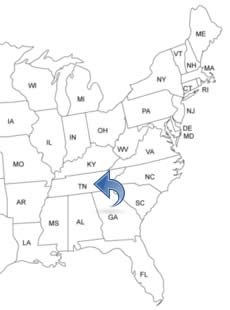Nashville People Search!
- ✔ Contact Info
- ✔ Phone Numbers
- ✔ Criminal Records
- ✔ Income Info
- ✔ Neighbors
- ✔ People's Age
- ✔ Property Ownership
- ✔ And Much More
Search People In Nashville, TN
Searching for people in Nashville, TN? Enter a name and press the search button and our USA people search will quickly locate and tell you where in Nashville that person lives. The result includes address, telephone number, criminal records, income, property records, and more.
The report includes:
- Address
- Phone Number
- Criminal Records
- Public Records
- Vehicle Records
- Income
- Occupation
- Education
- Property Ownership
- Age
- Gender
- Speeding Tickets
- Arrests
- Assaults
- Court Records
- Conviction Details
- Sex Offenses
- Jail Records
- Police Report
- Driving Violations
- Mugshot(s)
- Bankruptcy Filings
- Email Addresses
- Social Accounts
- Census Records
- Articles From Newspapers
- Immigration Documents
- Photos
- Birth
- Marrige
- Divorce
- Death
- Military Records
.......and much more.

Nashville, Tennessee
Nashville is located in the north-central part and is the capital and the largest city in the U.S. State of Tennessee. Music City. Nashville is perhaps best known for its music industry and for being the home of country music.
The city has a vibrant music and entertainment scene spanning a variety of genres. The largest industries in Nashville is health care, the automotive industry, insurance, finance, publishing, and the music industry.
To See And To Do In Nashville
- Country Music Hall of Fame and Museum
- Shelby Street Pedestrian Bridge
- Bicentennial Capitol Mall State Park
- Belmont Mansion
- The Parthenon
- AT&T Building
- Nashville Zoo at Grassmere
- Adventure Science Center
- Musica Sculpture
- Tennessee State Museum
- Nashville Opera
- Belle Meade Plantation
- Fort Negley
- Ryman Auditorium
- The Hermitage
- Golf
- Yazoo Brewery
- Cheekwood Botanical Garden and Museum of Art
History Of Nashville - Timeline
In 1714, the trapper Charles Charleville built a post near the present site of Nashville. In 1717, French fur traders established a trading post in the area. In 1769, the hunter Timothy Demonbreun built a cabin and began hunting in the area.
In 1779, the first permanent settlers arrived and started to build a town, and Nashville was founded. In 1781, settlers, assisted by their dogs, drove off the Indians. In 1784, the town was officially named Nashville.
In 1806, Nashville was incorporated. In 1812, The Tennessean, Nashville's primary daily newspaper, began its publication. In 1843, Nashville became the permanent capital of Tennessee. In 1855, the State Capitol building was completed. In 1862, Nashville was occupied by the Union forces.
In 1864, the Battle of Nashville took place in which Confederate General John Bell Hood failed to retake the city. In 1882, the Ryman Auditorium (the Mother Church of Country Music) opened as the Union Gospel Tabernacle.
In 1887, the Parthenon was completed and the Tennessee Centennial Exposition was held in Nashville in honor of the state's 100th birthday.
In 1900, more than 80,000 people were living in the city. In 1918, two trains collided and 101 people were killed and at least 171 people were injured. In 1942, Acuff-Rose Music, the first major Nashville-based country music publishing company was founded.
In 1957, a bomb was detonated at Hattie Cotton Elementary School when public schools began to be desegregated. In 1960, hundreds of college students launched a sit-in campaign to desegregate lunch counters throughout the city. In 1961, the CMA announced the creation of the Country Music Hall of Fame.
In 2001, the CMF held the grand opening of its new facility ten blocks away in downtown Nashville.

